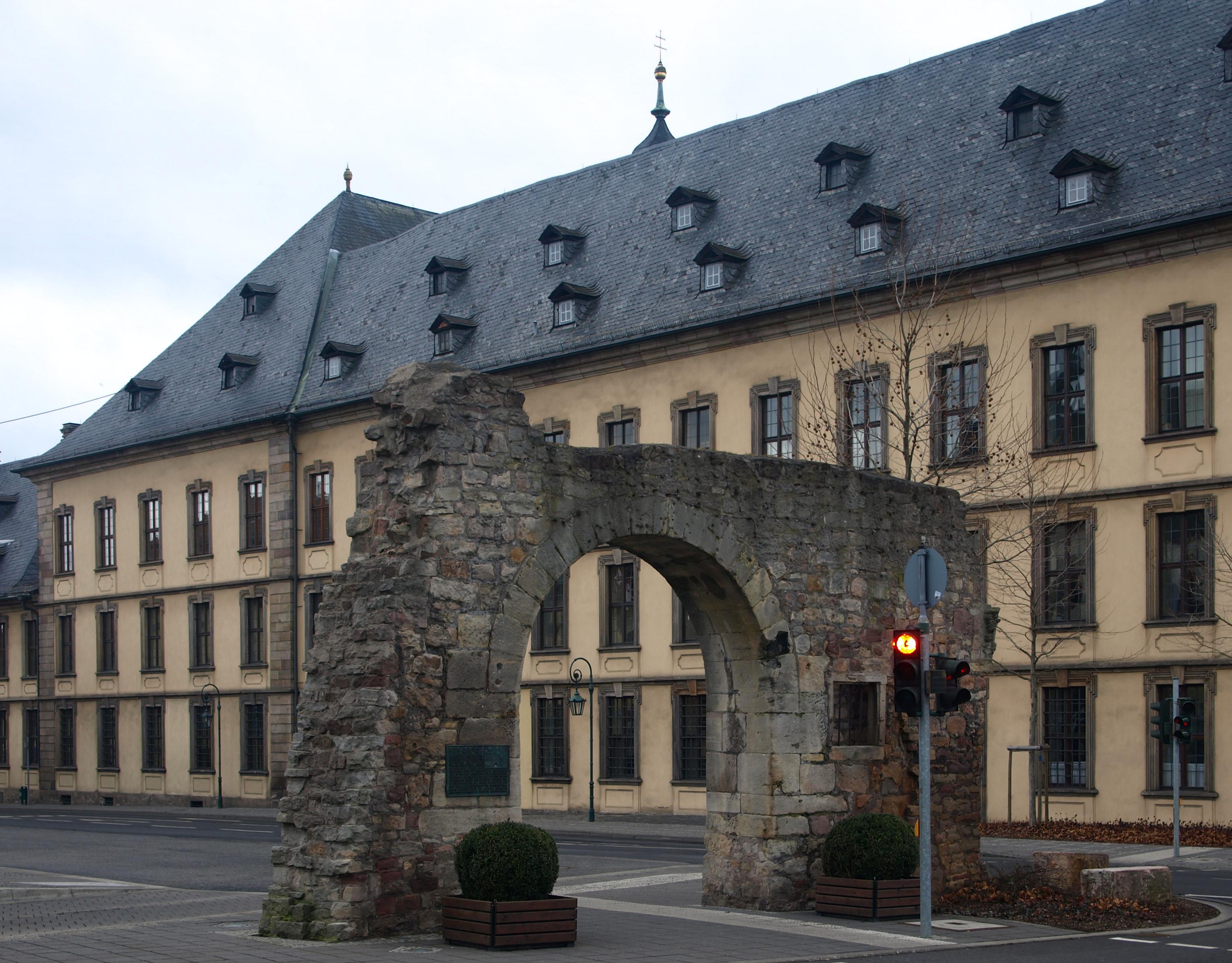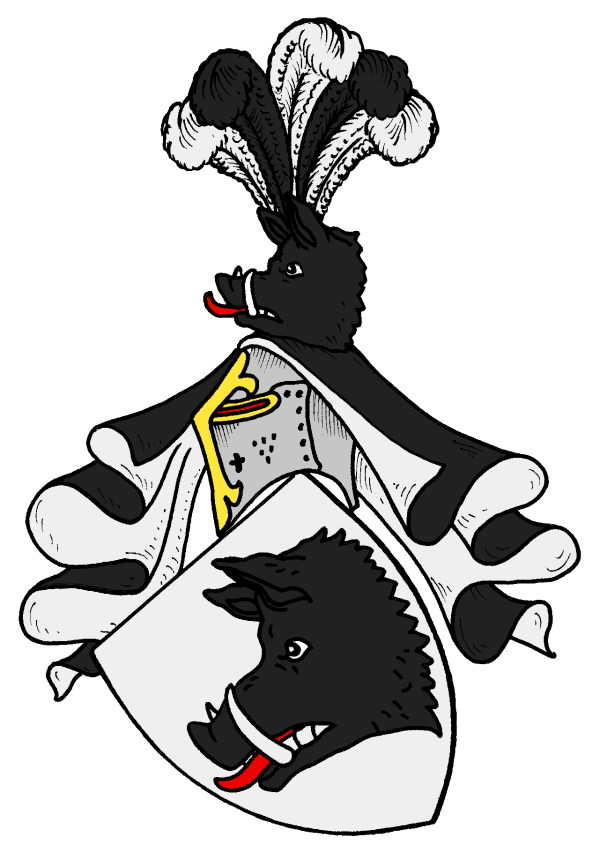|
Johann Ludwig Klüber
Johann Ludwig Klüber (10 November 1762, Tann, near Fulda - 16 February 1837, Frankfurt am Main) was a German law professor, author and state official. Biography He was professor of law at the University of Erlangen (1786-1804), privat-referendar, state and cabinet counsel, in Karlsruhe (1804–07 and 1808–17), and professor of law at Heidelberg (1807–08). During the Congress of Vienna (1814–15), by government permission, he resided there and collected and published ''Akten des Wiener Kongresses in den Jahren 1814 and 1815'' (8 vols., 1815–19). An enlarged edition (or just the most important portions according to NIE) was published 1830 under the title of ''Quellensammlung zu dem öffentlichen Rechte des Deutschen Bundes''. Under Karl August von Hardenberg, chancellor of state for Prussia, he became privy councillor in the Ministry of Foreign Affairs (1817), and, under its auspices, he assisted in the Congress of Aix-la-Chapelle (1818), and in political negotiations in Fr ... [...More Info...] [...Related Items...] OR: [Wikipedia] [Google] [Baidu] |
Tann, Hesse
Tann () is a town in the district of Fulda, in Hesse, Germany. It is situated in the Rhön Mountains, 27 km northeast of Fulda. It is an accredited Spa town at the Ulster River. Mayors * Karl Hilgen (SPD) till 1983 * Wolfgang Schwake (CDU) till 1989 * Dieter Herchenhan] (SPD) till 2001 * Markus Meysner (CDU) till 2013 * Mario Dänner (independent) since 2013 Buildings Image:Stadttor tann.jpg, City gate of Tann (built 1557–1563) File:Tann (Rhön), Ev. Stadtpfarrkirche-20160505-001.jpg, Protestant church File:Tann schlosshinten gelb.jpg, Tann yellow castle File:Tann blau schloss.jpg, Tann blue castle Sons and daughters of the town * Johann Ludwig Klüber (1762-1837), state lawyer and writer Personalities who have worked on the spot * Johann Michael Bach (musician at Wuppertal) (1745-1820), a member of the musical Bach family. Worked in Tann as a church musician (1786 to ca. 1795) * Sebastian Kehl (born 1980, Fulda), grew up in the district Lahrbach, professional fo ... [...More Info...] [...Related Items...] OR: [Wikipedia] [Google] [Baidu] |
Saint Petersburg
Saint Petersburg, formerly known as Petrograd and later Leningrad, is the List of cities and towns in Russia by population, second-largest city in Russia after Moscow. It is situated on the Neva, River Neva, at the head of the Gulf of Finland on the Baltic Sea. The city had a population of 5,601,911 residents as of 2021, with more than 6.4 million people living in the Saint Petersburg metropolitan area, metropolitan area. Saint Petersburg is the List of European cities by population within city limits, fourth-most populous city in Europe, the List of cities and towns around the Baltic Sea, most populous city on the Baltic Sea, and the world's List of northernmost items#Cities and settlements, northernmost city of more than 1 million residents. As the former capital of the Russian Empire, and a Ports of the Baltic Sea, historically strategic port, it is governed as a Federal cities of Russia, federal city. The city was founded by Tsar Peter the Great on 27 May 1703 on the s ... [...More Info...] [...Related Items...] OR: [Wikipedia] [Google] [Baidu] |
German Politicians
German(s) may refer to: * Germany, the country of the Germans and German things **Germania (Roman era) * Germans, citizens of Germany, people of German ancestry, or native speakers of the German language ** For citizenship in Germany, see also German nationality law **Germanic peoples (Roman era) *German diaspora * German language * German cuisine, traditional foods of Germany People * German (given name) * German (surname) * Germán, a Spanish name Places * German (parish), Isle of Man * German, Albania, or Gërmej * German, Bulgaria * German, Iran * German, North Macedonia * German, New York, U.S. * Agios Germanos, Greece Other uses * German (mythology), a South Slavic mythological being * Germans (band), a Canadian rock band * "German" (song), a 2019 song by No Money Enterprise * ''The German'', a 2008 short film * "The Germans", an episode of ''Fawlty Towers'' * ''The German'', a nickname for Congolese rebel André Kisase Ngandu See also * Germanic (disambiguati ... [...More Info...] [...Related Items...] OR: [Wikipedia] [Google] [Baidu] |
Academic Staff Of Heidelberg University
An academy (Attic Greek: Ἀκαδήμεια; Koine Greek Ἀκαδημία) is an institution of tertiary education. The name traces back to Plato's school of philosophy, founded approximately 386 BC at Akademia, a sanctuary of Athena, the goddess of wisdom and Skills, skill, north of Ancient Athens, Athens, Greece. The Royal Spanish Academy defines academy as scientific, literary or artistic society established with public authority and as a teaching establishment, public or private, of a professional, artistic, technical or simply practical nature. Etymology The word comes from the ''Academy'' in ancient Greece, which derives from the Athenian hero, ''Akademos''. Outside the city walls of Athens, the Gymnasium (ancient Greece), gymnasium was made famous by Plato as a center of learning. The sacred space, dedicated to the goddess of wisdom, Athena, had formerly been an olive Grove (nature), grove, hence the expression "the groves of Academe". In these gardens, the philos ... [...More Info...] [...Related Items...] OR: [Wikipedia] [Google] [Baidu] |
1837 Deaths
Events January–March * January 1 – The destructive Galilee earthquake of 1837, Galilee earthquake causes thousands of deaths in Ottoman Syria. * January 26 – Michigan becomes the 26th state admitted to the United States. * February 4 – Seminoles attack Fort Foster in Florida. * February 25 – In Philadelphia, the Institute for Colored Youth (ICY) is founded, as the first institution for the higher education of black people in the United States. * February – Charles Dickens's ''Oliver Twist'' begins publication in serial form in London. * March 1 – The Congregation of Holy Cross is formed in Le Mans, France, by the signing of the Fundamental Act of Union, which legally joins the Auxiliary Priests of Blessed Basil Moreau, CSC, and the Brothers of St. Joseph (founded by Jacques-François Dujarié) into one religious association. April–June * April 12 – The conglomerate of Procter & Gamble has its origins, when British-born businessmen William Procter and J ... [...More Info...] [...Related Items...] OR: [Wikipedia] [Google] [Baidu] |
1762 Births
Events January–March * January 4 – Seven Years' War: Britain declares war against Spain and Naples, following their recent alliance with France. * January 5 – Empress Elisabeth of Russia dies, and is succeeded by her nephew Peter III. Peter, an admirer of Frederick the Great, immediately opens peace negotiations with the Prussians. *January 16 – British forces under Robert Monckton land on the French island of Martinique in the Caribbean. * February 5 – The Great Holocaust of the Sikhs is carried out by the forces of Ahmed Shah Abdali in Punjab. In all, around 30,000 men, women and children perish in this campaign of slaughter. * February 15 – Invasion of Martinique (1762): French forces on Martinique surrender to the British. The island is subsequently returned to France, as part of the Peace of Paris. * March 5 – A Royal Navy fleet with 16,000 men departs Britain from Spithead and sets sail toward Cuba in order to seize st ... [...More Info...] [...Related Items...] OR: [Wikipedia] [Google] [Baidu] |
Kryptographik
''Kryptographik Lehrbuch der Geheimschreibekunst'' (''Cryptology: Instruction Book on the Art of Secret Writing'') is an 1809 book on cryptography written by Johann Ludwig Klüber. In 2011 the National Security Agency included a copy of ''Kryptographik'', used by a German cryptographer during World War II World War II or the Second World War (1 September 1939 – 2 September 1945) was a World war, global conflict between two coalitions: the Allies of World War II, Allies and the Axis powers. World War II by country, Nearly all of the wo ..., as part of a 50,000 page release of classified documents. References 1809 non-fiction books Cryptography books Classified documents {{Crypto-stub ... [...More Info...] [...Related Items...] OR: [Wikipedia] [Google] [Baidu] |
Congress Of Aix-la-Chapelle (1818)
The Congress of Aix-la-Chapelle, held in the autumn of 1818, was a high-level diplomatic meeting of France and the four allied powers Britain, Austria, Prussia and Russia, which had defeated it in 1814. The purpose was to decide the withdrawal of the army of occupation from France and renegotiate the reparations it owed. It produced an amicable settlement, whereby France refinanced its reparations debt; the Allies in a few weeks withdrew all of their troops. It was part of the series of conferences known as the Concert of Europe. The occupation was formally terminated at the conference on 30 September 1818; by 30 November evacuation was complete. The French representative Duc de Richelieu succeeded in having France admitted as a full discussion partner in the European congress system and France's position as a European power was restored. Financially, France was originally obligated to pay 700 million francs, in installments every four months for five years ( 1815 Treaty of Par ... [...More Info...] [...Related Items...] OR: [Wikipedia] [Google] [Baidu] |
Fulda
Fulda () (historically in English called Fuld) is a city in Hesse, Germany; it is located on the river Fulda and is the administrative seat of the Fulda district (''Kreis''). In 1990, the city hosted the 30th Hessentag state festival. History Middle Ages In 744 Saint Sturm, a disciple of Saint Boniface, founded the Benedictine monastery of Fulda as one of Boniface's outposts in the reorganization of the church in Germany. The initial grant for the abbey was signed by Carloman, Mayor of the Palace in Austrasia (in office 741–47), the son of Charles Martel. The support of the Mayors of the Palace, and later of the early Pippinid and Carolingian rulers, was important to Boniface's success. Fulda also received support from many of the leading families of the Carolingian world. Sturm, whose tenure as abbot lasted from 747 until 779, was most likely related to the Agilolfing dukes of Bavaria. Fulda also received large and constant donations from the Etichonids, a lea ... [...More Info...] [...Related Items...] OR: [Wikipedia] [Google] [Baidu] |
Prussia
Prussia (; ; Old Prussian: ''Prūsija'') was a Germans, German state centred on the North European Plain that originated from the 1525 secularization of the Prussia (region), Prussian part of the State of the Teutonic Order. For centuries, the House of Hohenzollern ruled Prussia, expanding its size with the Prussian Army. Prussia, with its capital at Königsberg and then, when it became the Kingdom of Prussia in 1701, History of Berlin, Berlin, decisively shaped the history of Germany. Prussia formed the German Empire when it united the German states in 1871. It was ''de facto'' dissolved by 1932 Prussian coup d'état, an emergency decree transferring powers of the Prussian government to German Chancellor Franz von Papen in 1932 and ''de jure'' by Abolition of Prussia, an Allied decree in 1947. The name ''Prussia'' derives from the Old Prussians who were conquered by the Teutonic Knightsan organized Catholic medieval Military order (religious society), military order of Pru ... [...More Info...] [...Related Items...] OR: [Wikipedia] [Google] [Baidu] |
Karl August Von Hardenberg
Karl August Fürst von Hardenberg (31 May 1750, in Essenrode- Lehre – 26 November 1822, in Genoa) was a Prussian statesman and Chief Minister of Prussia. While during his late career he acquiesced to reactionary policies, earlier in his career he implemented a variety of Liberal reforms. To him and Baron vom Stein, Prussia was indebted for improvements in its army system, the abolition of serfdom and feudal burdens, the throwing open of the civil service to all classes, and the complete reform of the educational system. Family Hardenberg was the eldest son of Christian Ludwig von Hardenberg (1700-1781), a Hanoverian colonel, later to become field marshal and commander-in-chief of the Hanoverian Army under Elector George III from 1776 until his death. His mother was Anna Sophia Ehrengart von Bülow. He was born, one of eight children, at Essenrode Manor near Hanover in the Electorate of Hanover, his maternal grandfather's estate. The ancestral home of the ''knights of Ha ... [...More Info...] [...Related Items...] OR: [Wikipedia] [Google] [Baidu] |





